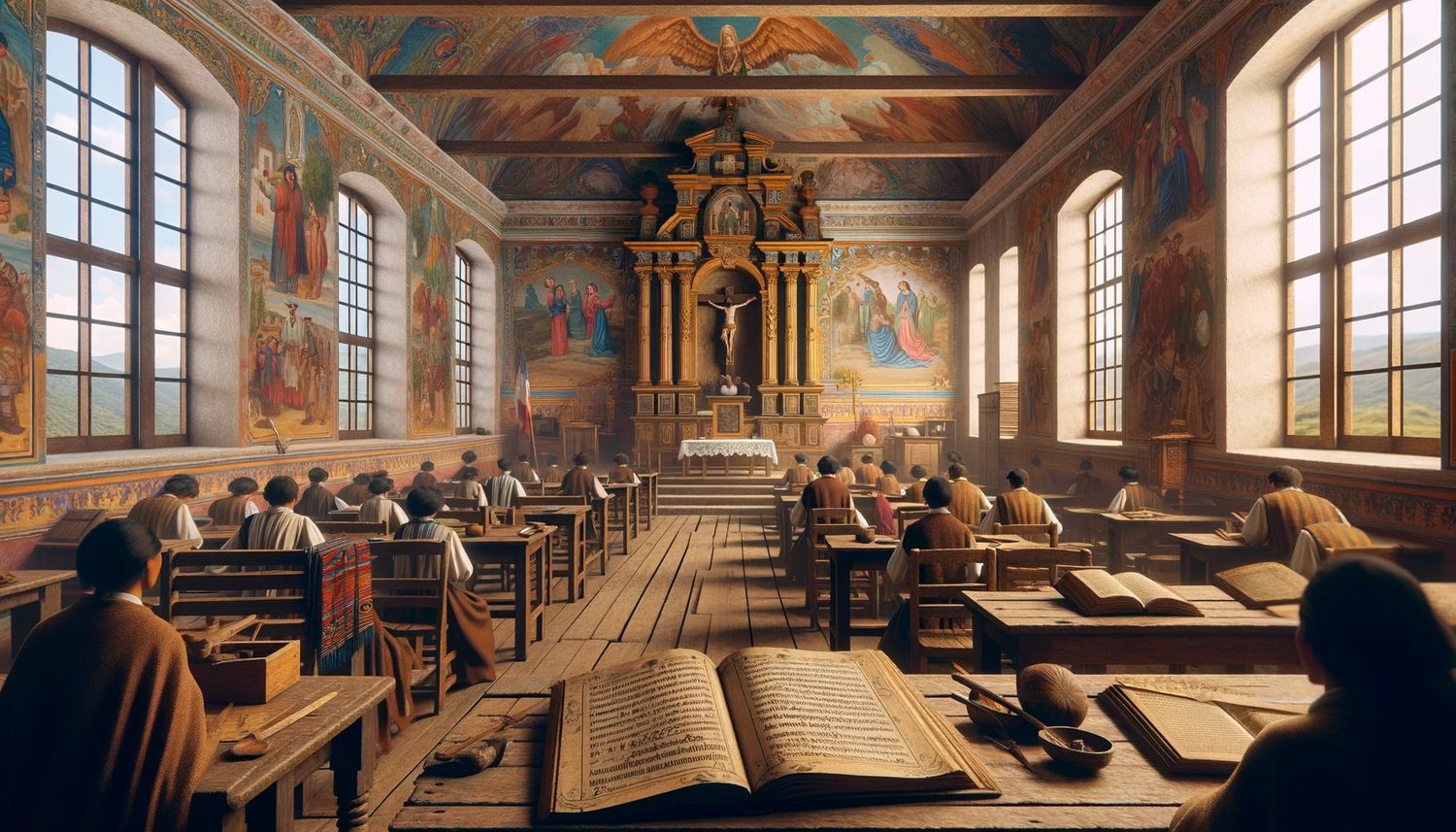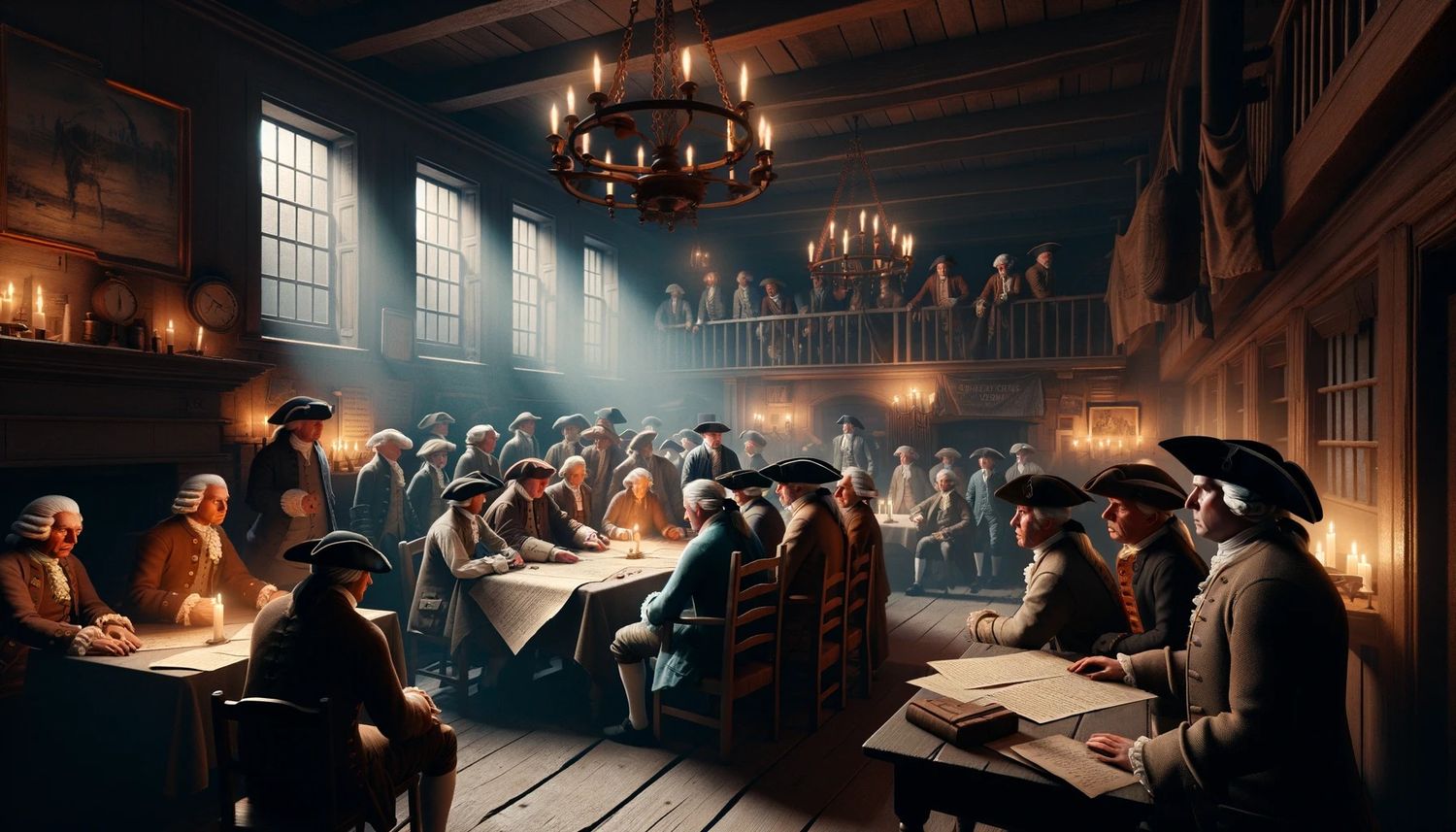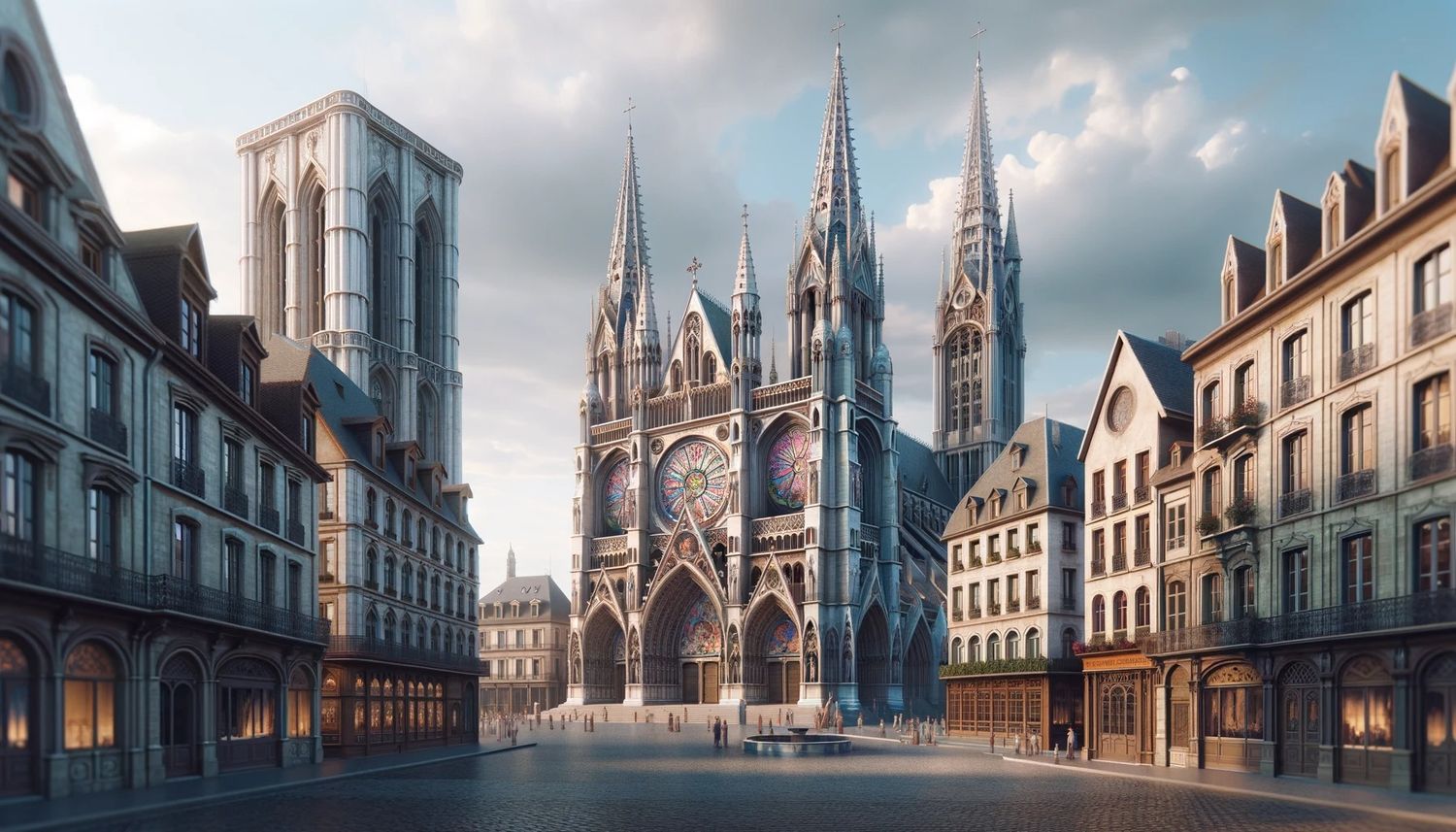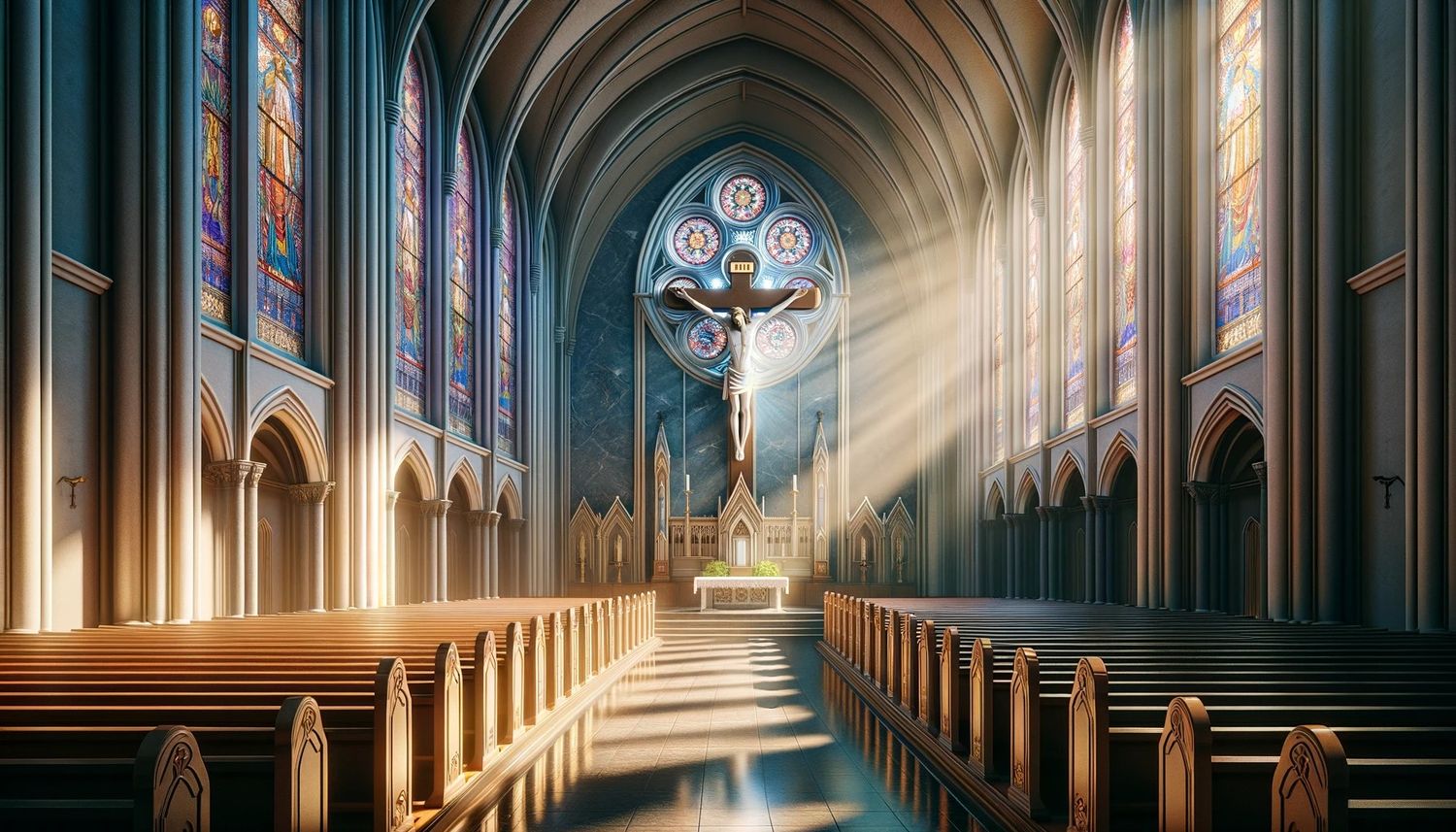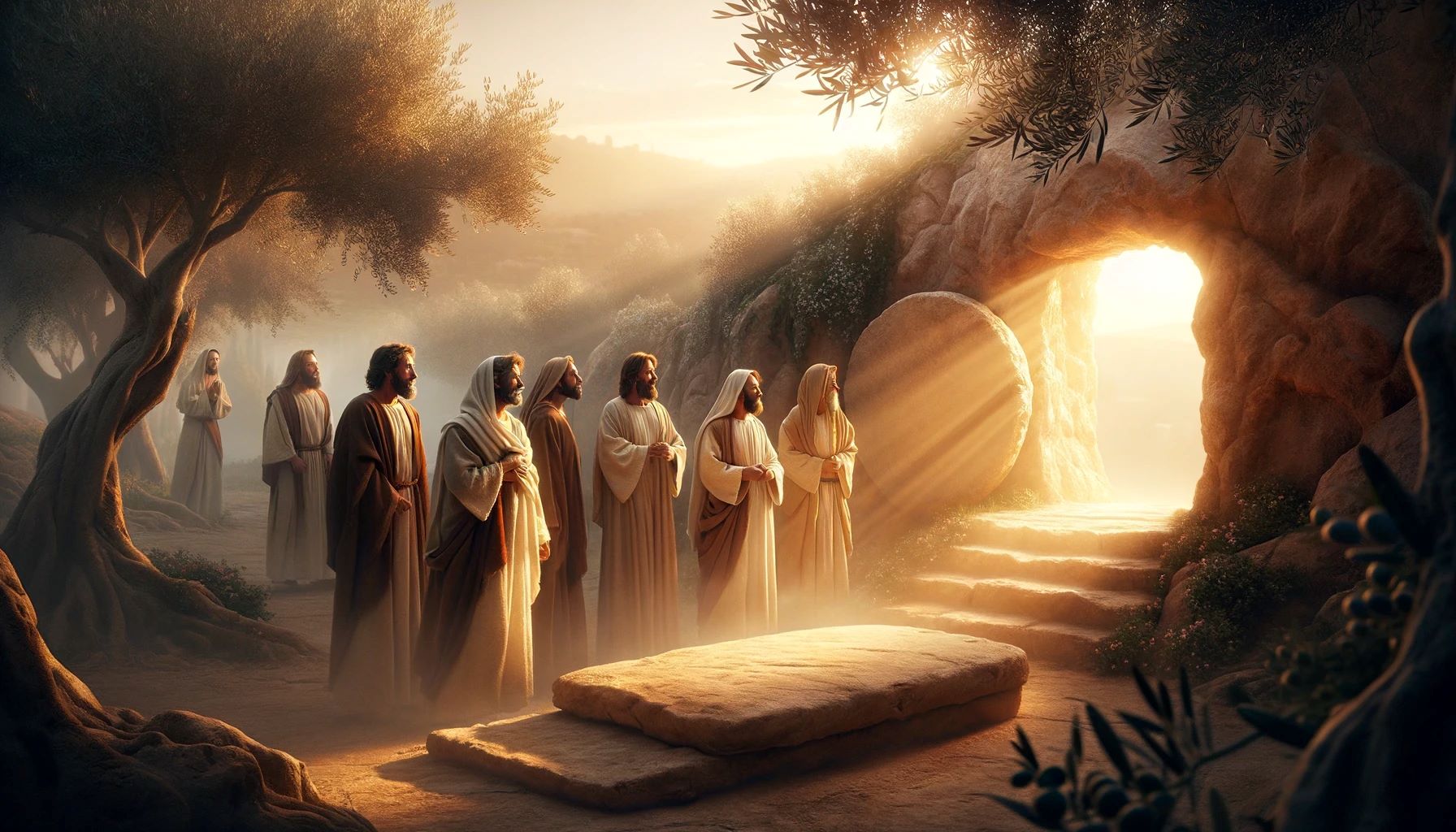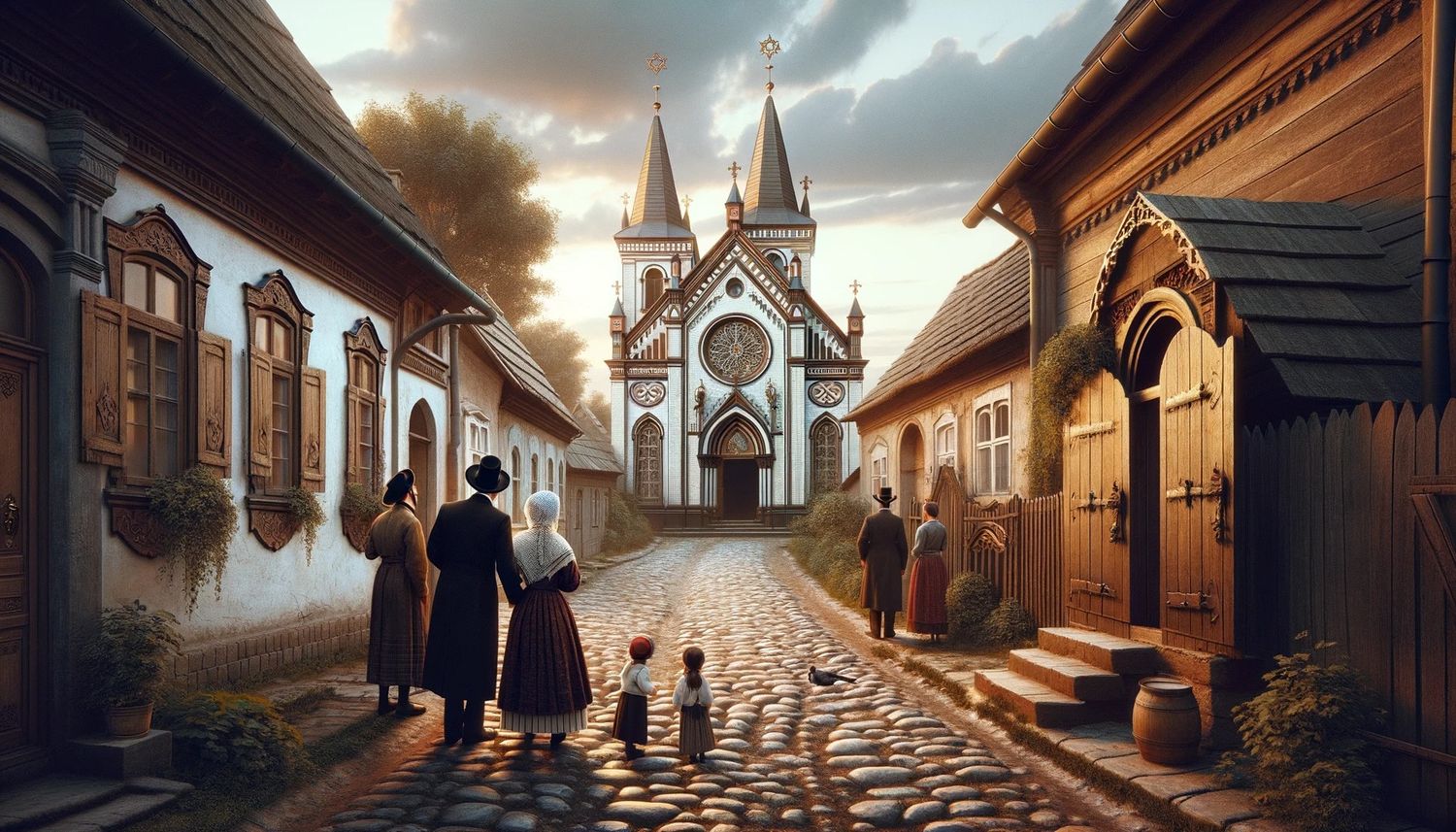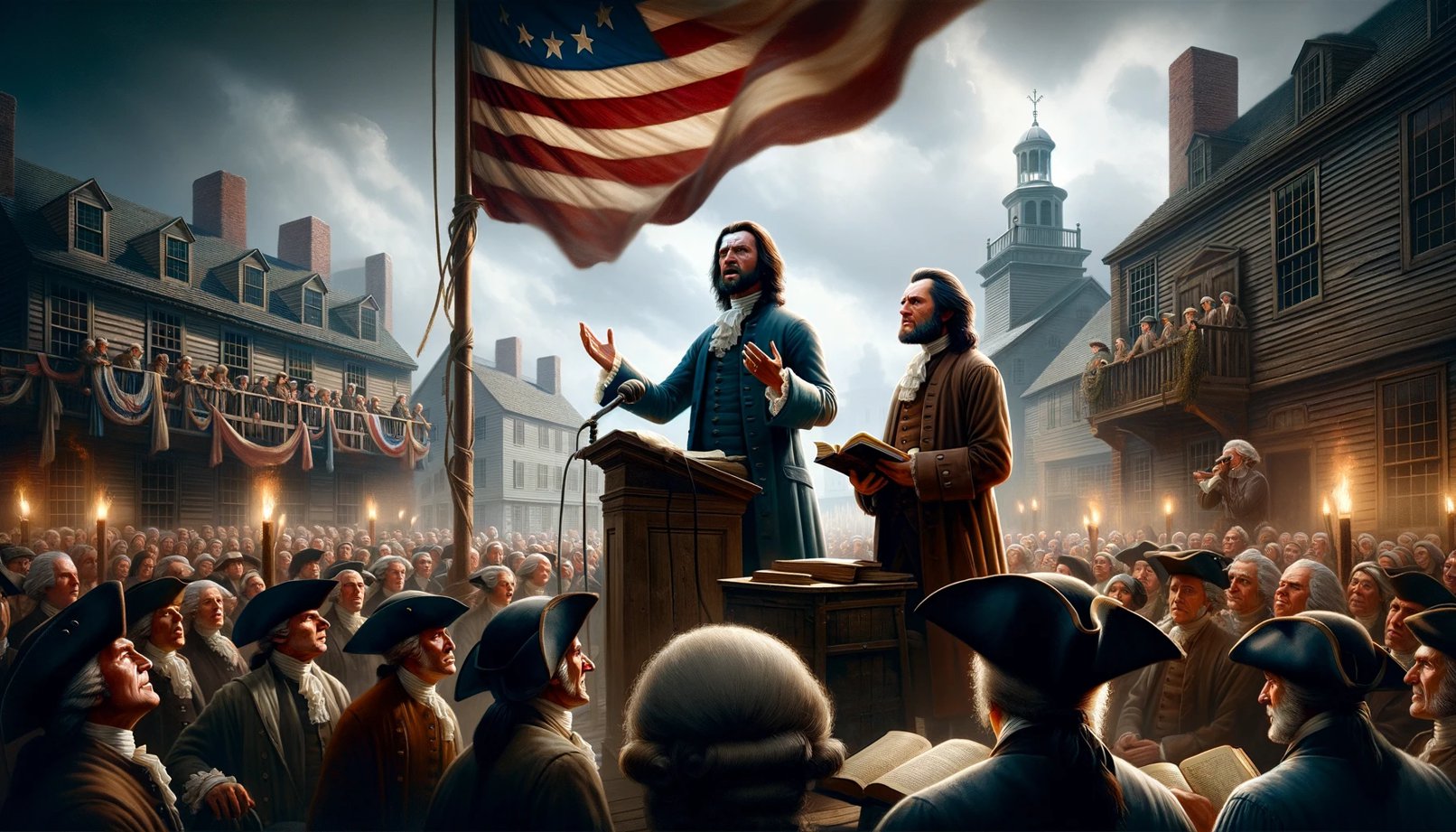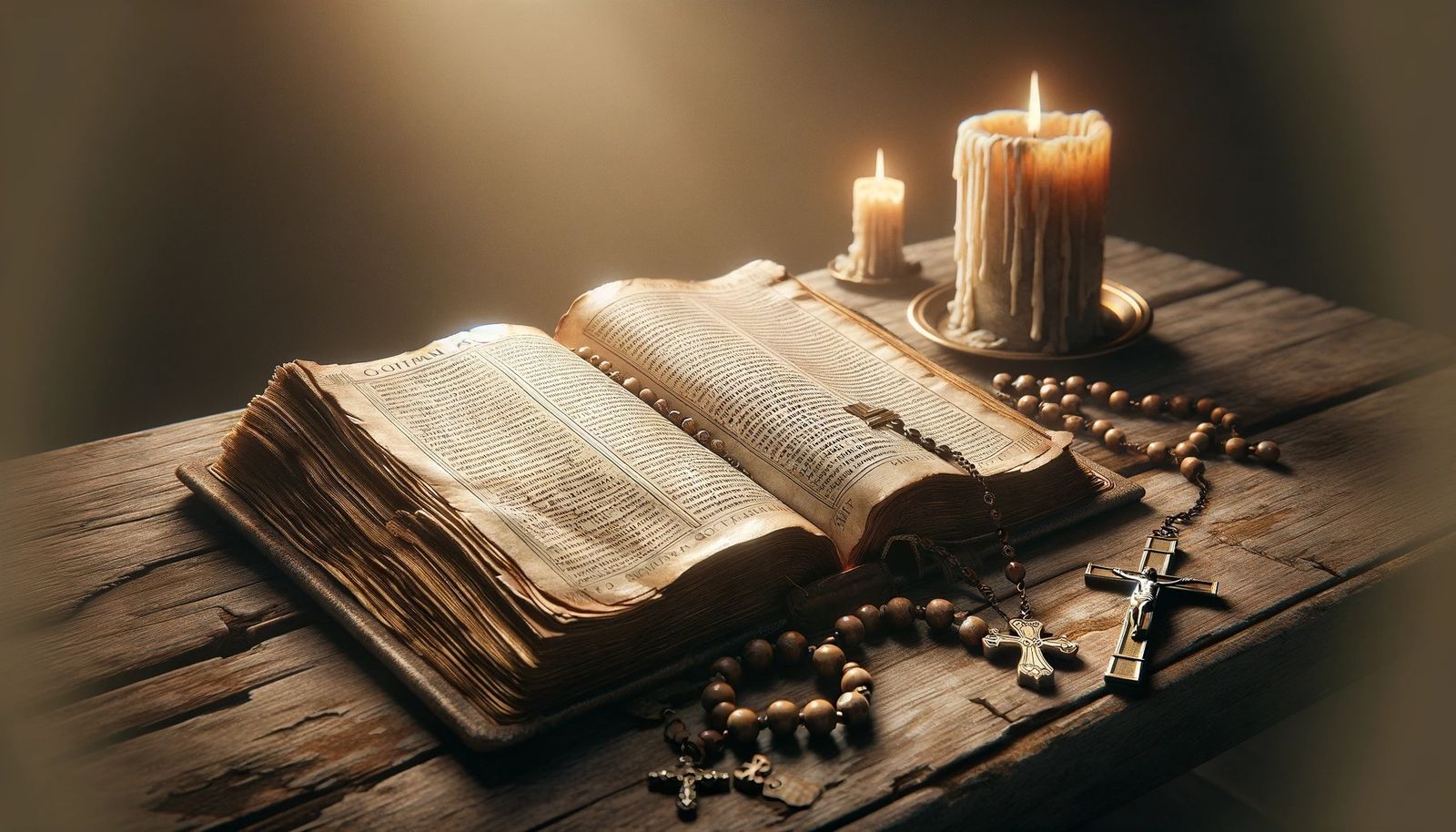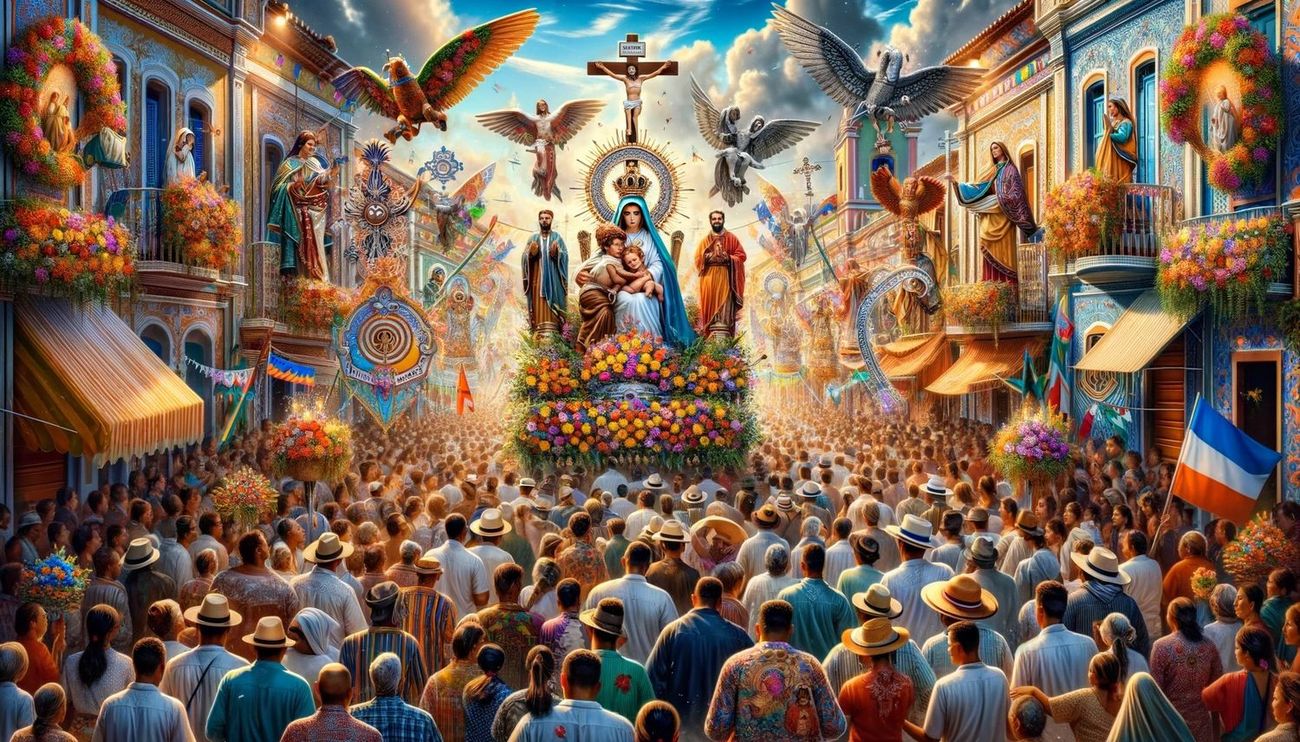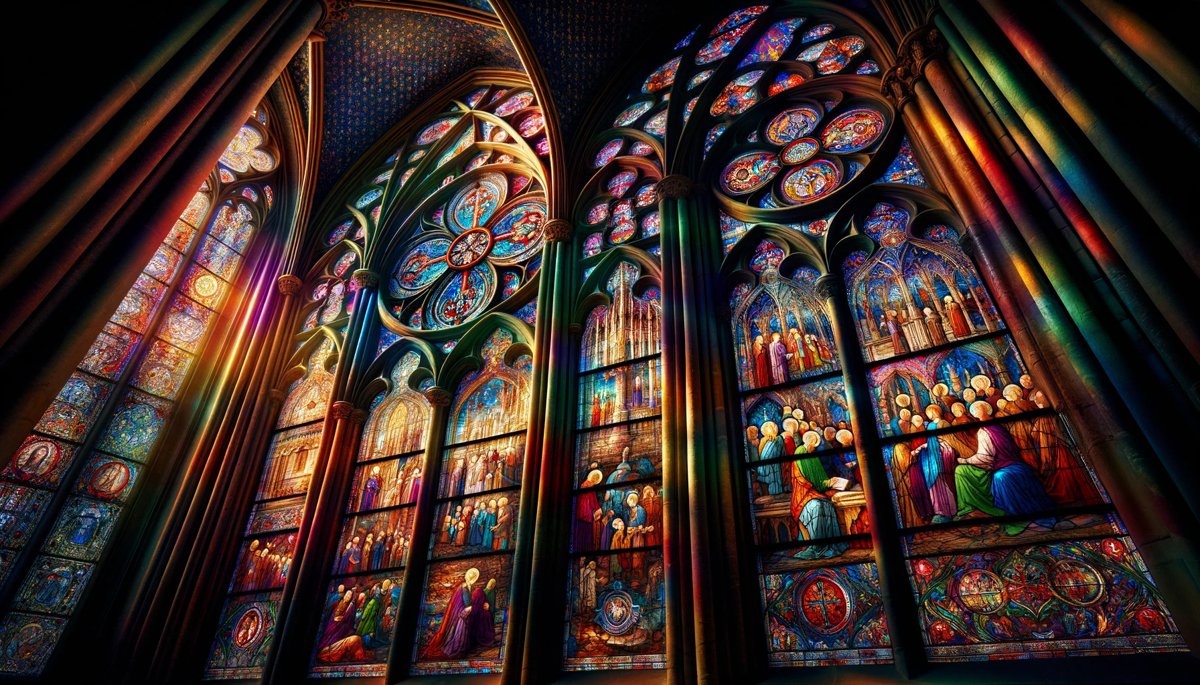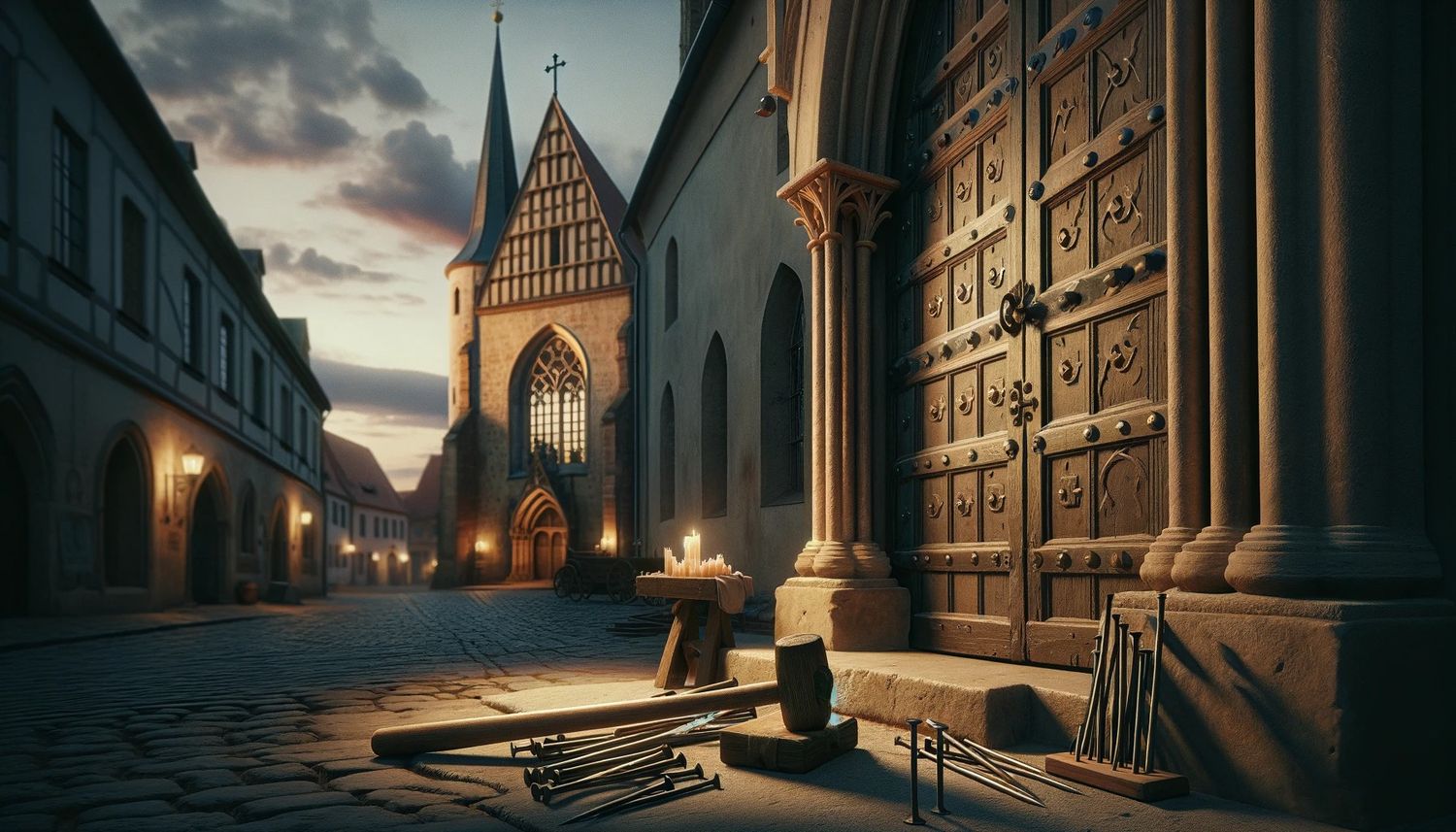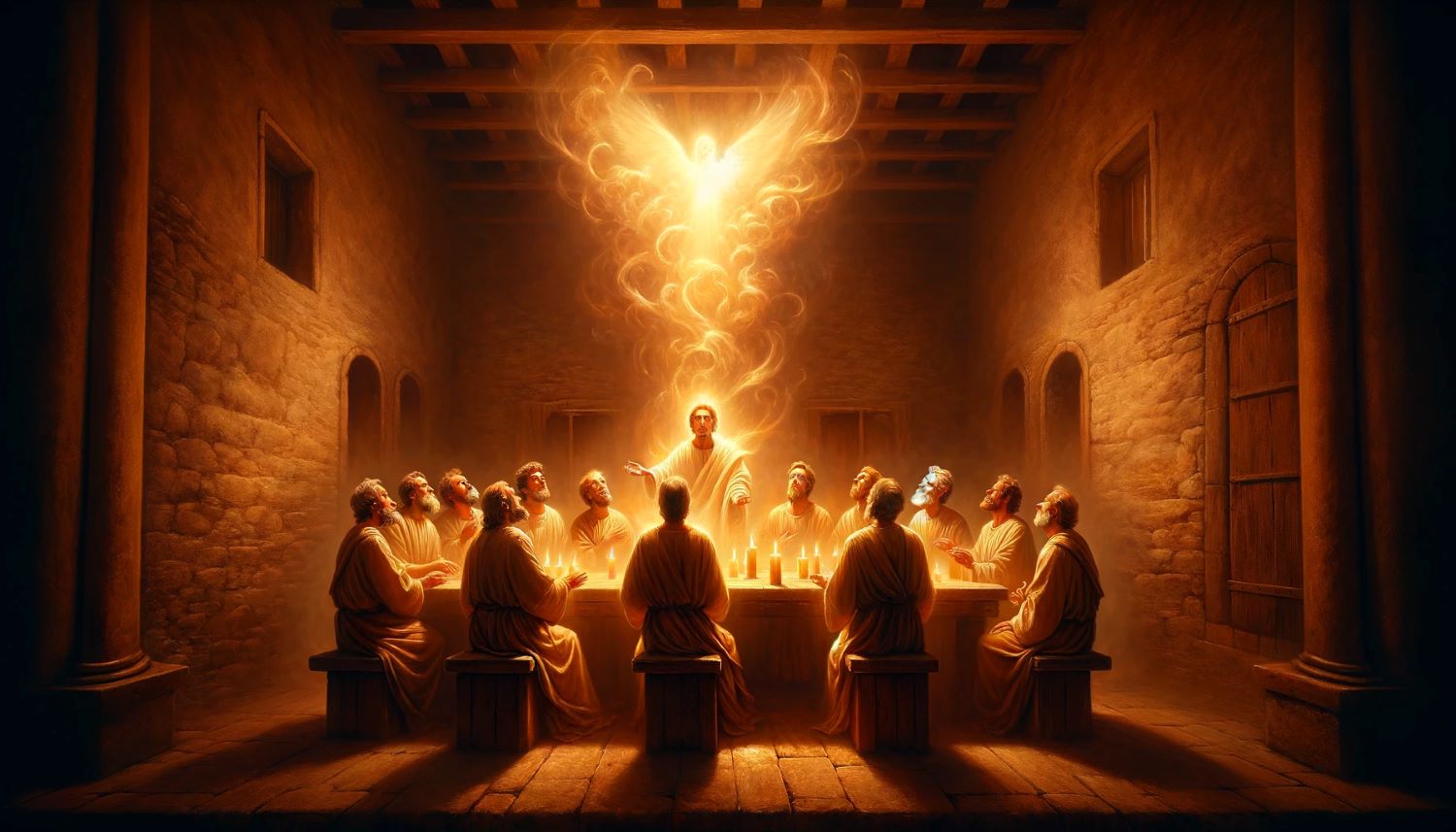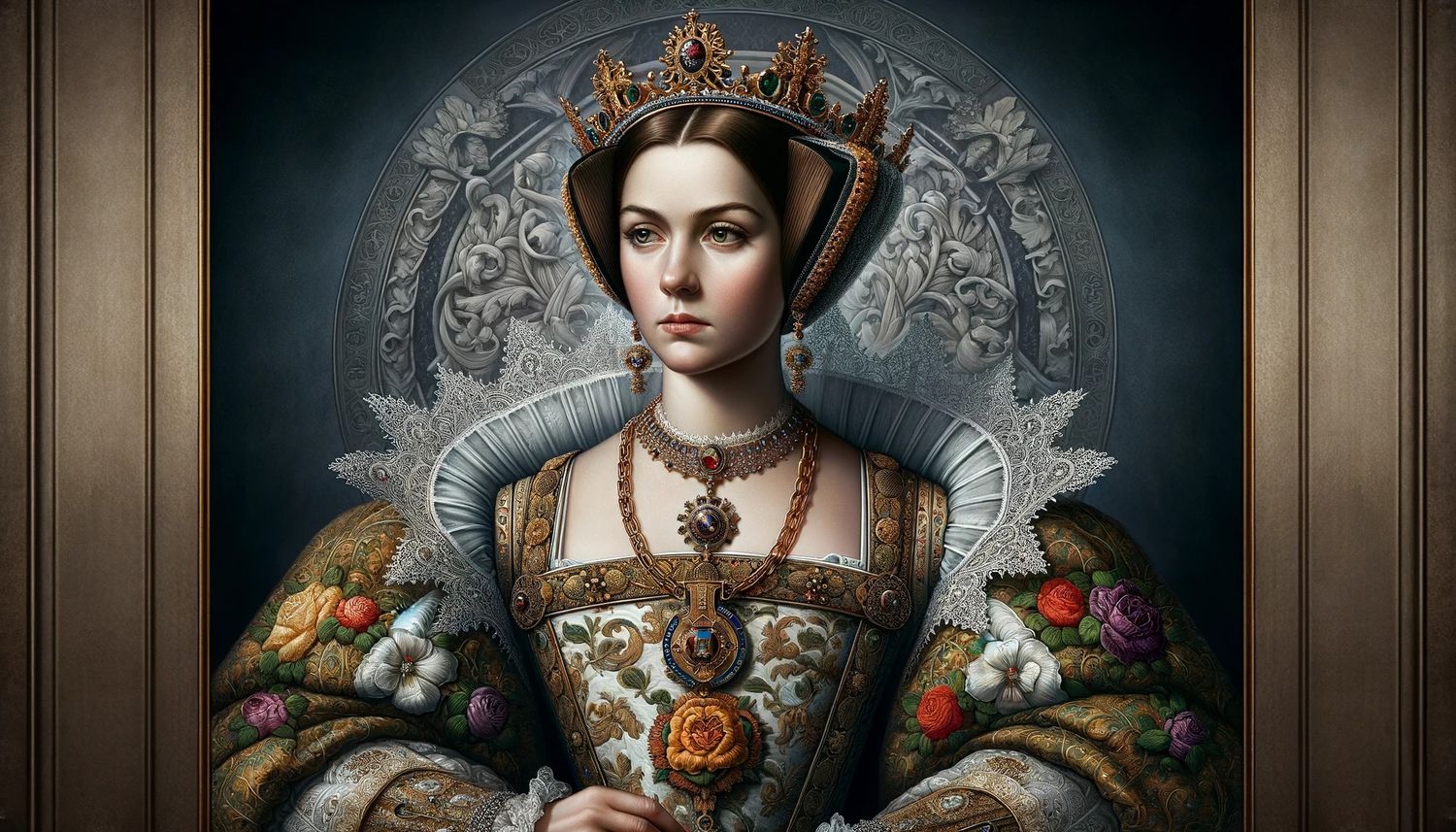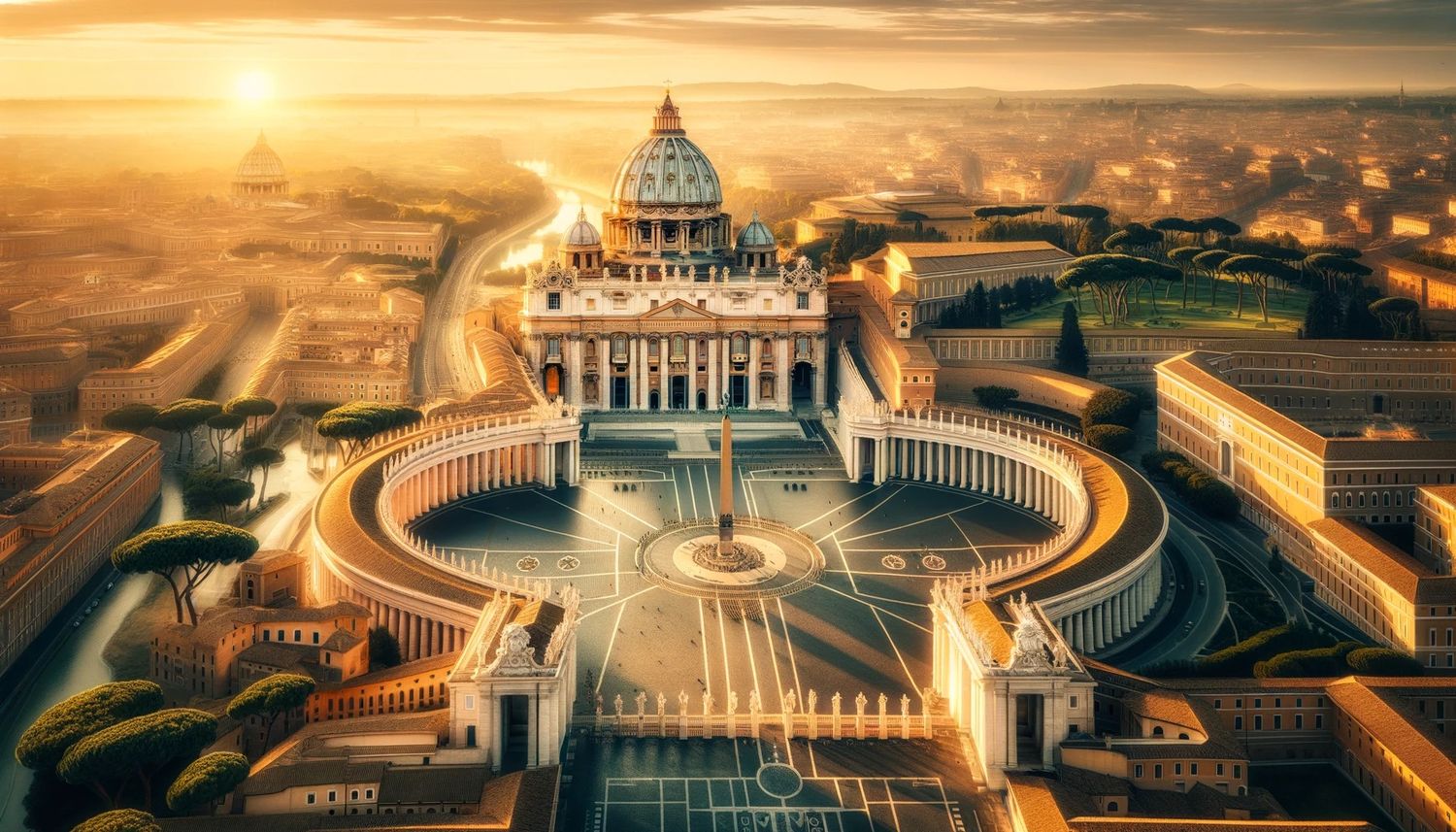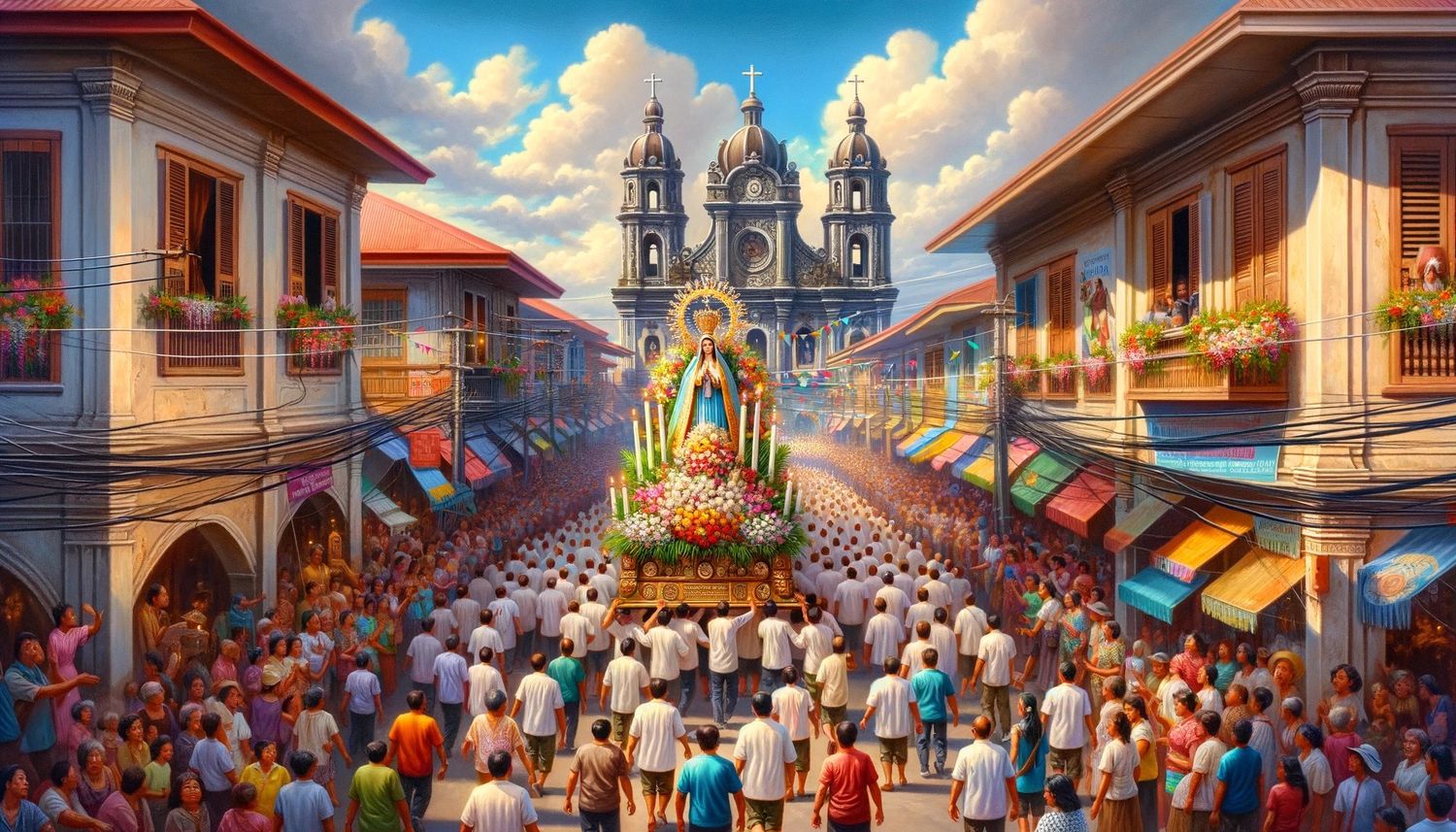Home>Theology and Spirituality>How Did Beliefs And Practices Of Roman Catholicism Affect Medieval European Society
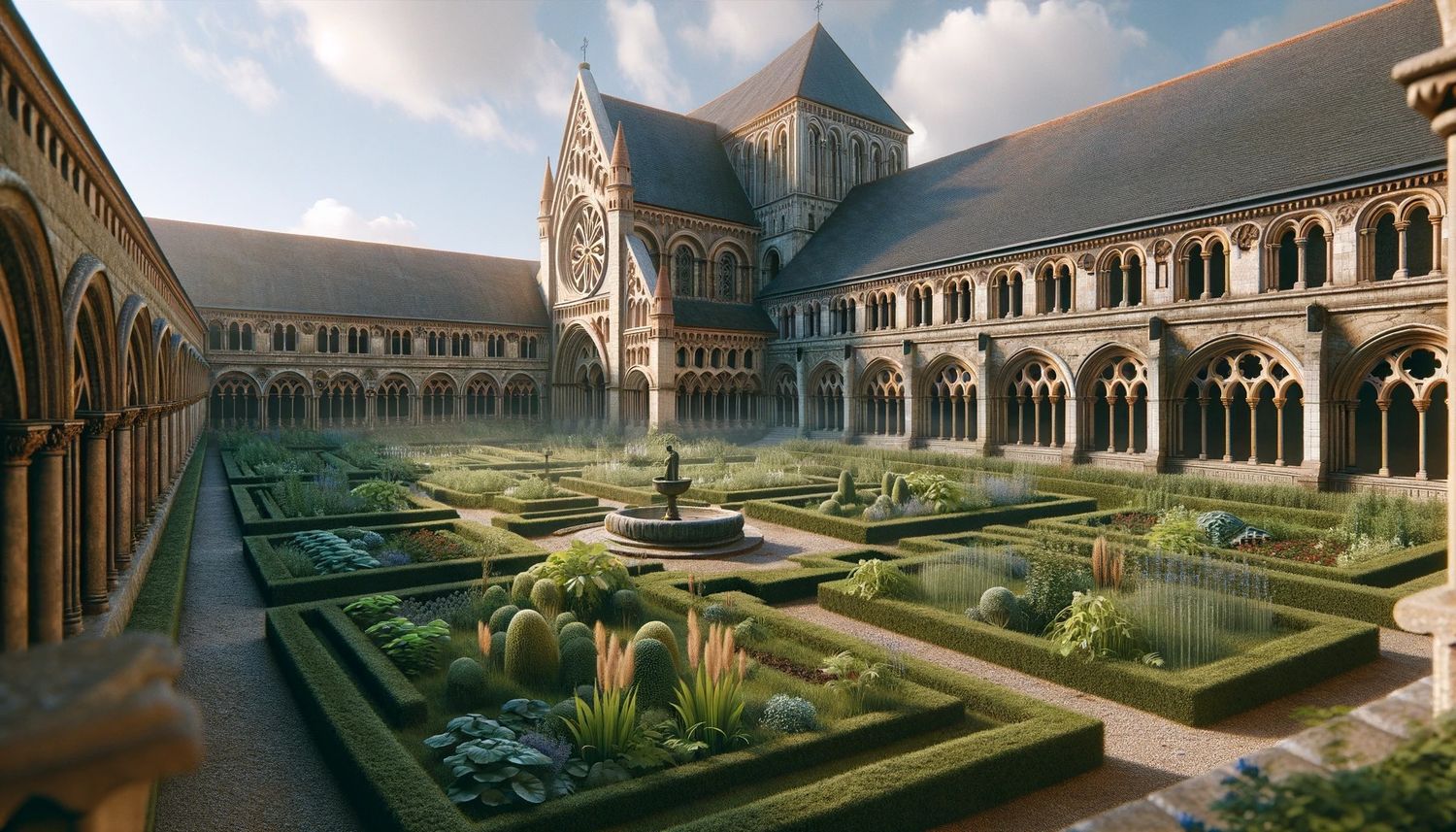

Theology and Spirituality
How Did Beliefs And Practices Of Roman Catholicism Affect Medieval European Society
Published: February 15, 2024
Peter Smith, Editorial Director at Christian.net, combines deep insights into faith, politics, and culture to lead content creation that resonates widely. Awarded for his contributions to religious discourse, he previously headed a major organization for religious communicators, enhancing dialogue on faith's societal impacts.
Explore the impact of Roman Catholic beliefs and practices on medieval European society, delving into the intertwining of theology and spirituality. Understand the profound influence of Catholicism on the cultural and social fabric of the era.
(Many of the links in this article redirect to a specific reviewed product. Your purchase of these products through affiliate links helps to generate commission for Christian.net, at no extra cost. Learn more)
Table of Contents
Introduction
The medieval period in European history, spanning from the 5th to the 15th century, was profoundly shaped by the beliefs and practices of Roman Catholicism. During this era, the Roman Catholic Church held immense influence over the spiritual, social, and political aspects of society, playing a pivotal role in shaping the lives of individuals and the collective consciousness of the European populace. The impact of Roman Catholic beliefs and practices during this time was far-reaching, permeating every facet of daily life and leaving an indelible mark on the cultural landscape of medieval Europe.
As the dominant religious institution of the time, the Roman Catholic Church wielded significant authority and power, guiding the moral compass of society and providing a framework for understanding the world. The teachings of the Church, rooted in the sacred texts of the Bible and the traditions of early Christianity, served as the cornerstone of medieval European spirituality. The concept of sin, salvation, and the afterlife held a central position in the collective mindset, shaping the behaviors and aspirations of individuals within the societal framework.
Moreover, the rituals and sacraments administered by the Church formed the bedrock of communal worship and religious observance, fostering a sense of unity and shared identity among the populace. The celebration of the Eucharist, baptism, marriage, and other sacraments provided a spiritual rhythm to the lives of medieval Europeans, punctuating the passage of time with moments of divine significance. These religious practices not only offered solace and hope to individuals but also reinforced the communal bonds that underpinned medieval society.
In this article, we will delve into the profound influence of Roman Catholic beliefs and practices on medieval European society, exploring how the Church's teachings and rituals shaped the moral, cultural, and social fabric of the time. By examining the interplay between religious doctrine and everyday life, we can gain a deeper understanding of the enduring impact of Roman Catholicism on the medieval European mindset and societal structure. Through this exploration, we can illuminate the intricate tapestry of faith, tradition, and communal life that characterized the medieval period, shedding light on the enduring legacy of Roman Catholicism in shaping the course of European history.
The Influence of Roman Catholic Beliefs on Medieval European Society
The influence of Roman Catholic beliefs on medieval European society was profound and multifaceted, permeating every aspect of daily life and shaping the collective mindset of the populace. At the core of this influence was the concept of sin and salvation, which formed the cornerstone of medieval Christian theology. The Church's teachings emphasized the inherent sinful nature of humanity and the necessity of divine grace for salvation. This belief in the fallen state of humanity instilled a deep sense of humility and dependence on the mercy of God, shaping the moral consciousness of medieval Europeans.
The fear of eternal damnation and the hope for salvation motivated individuals to adhere to the moral precepts set forth by the Church, creating a pervasive sense of accountability and moral responsibility within the societal framework. The notion of sin permeated the collective psyche, influencing behaviors, social interactions, and ethical decision-making. The fear of divine retribution and the promise of heavenly reward instilled a profound reverence for the moral authority of the Church, reinforcing its role as the custodian of spiritual truth and moral guidance.
Furthermore, the belief in the afterlife as a continuation of the soul's journey beyond earthly existence imbued medieval society with a profound sense of spiritual purpose and eternal significance. The Church's teachings on the resurrection, judgment, and the eternal state of the soul provided a transcendent perspective that infused daily life with a profound sense of meaning and purpose. This belief in the eternal destiny of the soul shaped the attitudes towards mortality, suffering, and the transient nature of earthly existence, fostering a spiritual resilience and a steadfast hope in the face of life's trials and tribulations.
Moreover, the veneration of saints, relics, and sacred images within the Roman Catholic tradition engendered a rich tapestry of religious devotion and communal piety. The cult of saints provided a tangible link between the earthly realm and the divine, offering intercessors and exemplars for the faithful to emulate. The veneration of relics and pilgrimage to sacred sites became integral expressions of religious devotion, fostering a sense of collective identity and shared spiritual heritage among medieval Europeans.
In essence, the influence of Roman Catholic beliefs on medieval European society was profound, shaping the moral, spiritual, and existential dimensions of daily life. The interplay between sin and salvation, the hope for eternal life, and the rich tapestry of religious devotion formed the bedrock of medieval Christian consciousness, leaving an enduring imprint on the cultural and spiritual legacy of the era.
The Impact of Roman Catholic Practices on Medieval European Society
The impact of Roman Catholic practices on medieval European society was profound and far-reaching, permeating every aspect of daily life and shaping the collective identity of the populace. The rituals and sacraments administered by the Church formed the cornerstone of communal worship and religious observance, providing a framework for spiritual expression and communal solidarity. The celebration of the Eucharist, baptism, marriage, and other sacraments punctuated the rhythm of daily life with moments of divine significance, imbuing the mundane with a sense of sacredness and spiritual resonance.
The Eucharist, or Holy Communion, held a central place in the religious life of medieval Europeans. The act of partaking in the body and blood of Christ during the Mass was not merely a symbolic ritual but a profound encounter with the divine, fostering a sense of spiritual nourishment and unity among the faithful. The Eucharistic celebration served as a focal point of communal worship, bringing together individuals from all strata of society to partake in the sacred mystery of Christ's presence. This shared experience of the Eucharist forged a sense of collective belonging and spiritual communion, transcending the boundaries of class, status, and occupation.
Furthermore, the sacrament of baptism marked the initiation of individuals into the Christian community, signifying their incorporation into the body of Christ. The ritual of baptism, often performed in elaborate ceremonies within the grandeur of medieval cathedrals, symbolized the washing away of sin and the bestowal of divine grace upon the newly baptized. This sacred rite not only conferred spiritual rebirth upon the individual but also reinforced the bonds of kinship and communal solidarity within the broader Christian community.
The sacrament of marriage, with its solemn vows and sacred blessings, sanctified the union of couples and provided a sacred framework for the formation of families and the perpetuation of lineage. The Church's teachings on the sanctity of marriage and the moral responsibilities of spouses imparted a sense of divine purpose to the institution of matrimony, elevating it to a sacred covenant imbued with spiritual significance.
Moreover, the practice of confession and absolution offered a pathway to spiritual renewal and moral reconciliation, allowing individuals to seek forgiveness for their transgressions and receive the assurance of divine mercy. The sacrament of confession provided a means for the faithful to unburden their souls and seek spiritual healing, fostering a culture of repentance and moral accountability within medieval European society.
In essence, the impact of Roman Catholic practices on medieval European society was profound, shaping the spiritual, communal, and ethical dimensions of daily life. The rituals and sacraments administered by the Church provided a framework for spiritual expression, communal solidarity, and moral renewal, leaving an indelible mark on the cultural and religious landscape of the era.
The Role of the Church in Shaping Medieval European Society
The Roman Catholic Church played a pivotal role in shaping the moral, cultural, and social fabric of medieval European society. As the dominant religious institution of the era, the Church wielded significant influence over the spiritual and temporal affairs of the populace, permeating every aspect of daily life with its teachings, rituals, and organizational structure.
At the heart of the Church's role was its function as the custodian of spiritual truth and moral guidance. The clergy, comprising bishops, priests, and monastics, served as the mediators between the divine and the earthly realm, providing pastoral care, administering sacraments, and imparting religious instruction to the laity. Through preaching, catechesis, and pastoral visitations, the Church disseminated its teachings on sin, salvation, and moral conduct, shaping the ethical framework within which medieval Europeans navigated their lives.
Furthermore, the Church's hierarchical structure and administrative apparatus provided a stabilizing force in an era marked by political fragmentation and social upheaval. The authority of the papacy, bishops, and abbots extended beyond the spiritual realm, encompassing matters of governance, justice, and charitable works. The Church's extensive landholdings, known as the "patrimony of St. Peter," endowed it with economic resources and political influence, enabling it to exert a significant impact on the material conditions of medieval society.
In addition to its spiritual and administrative functions, the Church served as a unifying force that transcended regional, linguistic, and cultural divisions. The liturgical rites of the Church, celebrated in Latin, provided a common religious language that fostered a sense of unity and shared identity among diverse communities. The veneration of saints, the observance of feast days, and the pilgrimage to sacred sites created a rich tapestry of religious devotion that transcended local customs and traditions, forging a sense of collective belonging within the broader Christian community.
Moreover, the Church's patronage of art, architecture, and learning contributed to the flourishing of medieval culture and intellectual life. The construction of cathedrals, monasteries, and pilgrimage churches served as expressions of religious devotion and communal pride, shaping the physical landscape of medieval Europe. The preservation and transmission of classical knowledge, coupled with the cultivation of theology, philosophy, and the arts within monastic and cathedral schools, laid the foundation for the intellectual achievements of the medieval period.
In essence, the Church's multifaceted role in shaping medieval European society encompassed spiritual guidance, administrative stewardship, cultural unification, and intellectual patronage. Its influence permeated every aspect of daily life, leaving an indelible mark on the collective consciousness and cultural legacy of the era.
Conclusion
In conclusion, the beliefs and practices of Roman Catholicism exerted a profound and enduring influence on medieval European society, shaping the moral, spiritual, and cultural dimensions of daily life. The interplay between Roman Catholic beliefs, such as the concepts of sin, salvation, and the afterlife, infused the collective consciousness with a profound sense of spiritual purpose and moral accountability. The rituals and sacraments administered by the Church, including the Eucharist, baptism, marriage, and confession, provided a framework for communal worship, spiritual expression, and moral renewal, fostering a sense of communal solidarity and shared spiritual heritage among medieval Europeans.
The role of the Church as the custodian of spiritual truth, moral guidance, and administrative stewardship endowed it with significant influence over the spiritual and temporal affairs of medieval society. The hierarchical structure of the Church, coupled with its role as a unifying force transcending regional and cultural divisions, contributed to the cohesion and stability of medieval European society. Furthermore, the Church's patronage of art, architecture, and learning enriched the cultural and intellectual landscape of the era, leaving a lasting legacy of artistic and scholarly achievements.
The enduring impact of Roman Catholicism on medieval European society is evident in the rich tapestry of religious devotion, communal piety, and cultural expression that characterized the era. The legacy of the medieval Church continues to resonate in the cultural heritage, religious traditions, and moral values of contemporary European societies, underscoring the enduring influence of Roman Catholic beliefs and practices on the collective identity of the European populace.
In understanding the profound impact of Roman Catholicism on medieval European society, we gain insight into the intricate interplay between faith, culture, and communal life, illuminating the enduring legacy of the medieval Church in shaping the course of European history. The beliefs and practices of Roman Catholicism not only provided a framework for spiritual expression and communal solidarity but also imbued daily life with a profound sense of meaning, purpose, and moral responsibility, leaving an indelible mark on the cultural and spiritual legacy of the medieval period.
